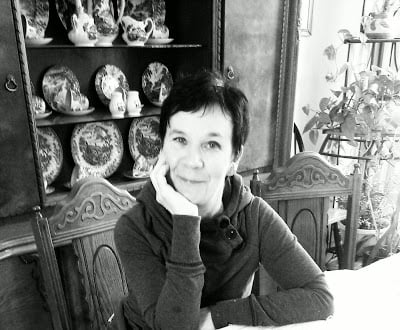 Via
Pexels (2016), CC0 Public Domain
Via
Pexels (2016), CC0 Public Domain
A young child who knows enough words to communicate can describe their prenatal memories and their birth from their own unique perspective, not as an observer. Most of my nine children were able to verbalize their womb and birth experiences if my husband and I posed questions before they were three and a half or four years old, because most children can no longer remember after that age.
Although my claims about prenatal memories might strike many modern readers as fanciful stories exaggerated by a proud mother, the truth is even the ancient Hebrews understood that prenatal infants were capable of interacting, not only with people but with God Himself. Jeremiah 1:5 tells us, “Before I formed you in the womb I knew you,/ before you were born I dedicated you.” The preverbal, prenatal Jeremiah sensed the voice of God and was capable of receiving a call and appointment to be a prophet. Psalm 139 also describes a relationship between the Holy Spirit and an unborn baby. “You formed my inmost being;/ you knit me in my mother’s womb.”
Prenatal Memories
The day my second child turned two, her godmother dropped by to celebrate her birthday. Since Jean was very articulate for her age, her godmother wanted to try an experiment she had read about in a hospital newsletter. The article stated that if you asked a young child when they knew enough words to communicate but before they were too old, they could tell you about their life in the womb. So we decided to test this premise.
Jean was tiny but smart, so she startled people with her clear diction and a large vocabulary. This particular day she was standing on a chair behind the kitchen table, playing with a new doll. During the conversation, she answered mainly with one-word sentences because most of her attention was on her toy.
I felt a bit foolish as I asked my daughter, “Jean, do you remember when you were in mummy’s tummy?”
She answered, “Yaa.”
So then I wondered if she remembered any details. “What was it like?”
Again Jean could only spare a one-word answer: “Warm.”
“What else was it like?” I questioned.
To which she answered quite succinctly, “Dark.”
“What could you see?” I probed.
Jean was frustrated by my dumb question. “Nothin’; it was dark!”
So I scrambled, “What did you do in my tummy?”
Jean said nonchalantly, “Dwimming.”
I checked to make sure I understood her. “Swimming?”
She nodded.
“Did you like living in my tummy?” I wondered.
She nodded again.
Then I thought of a really good question. “Do you remember coming out, being born?”
Jean scrunched up her nose and sighed, “Yaa.”
“What was it like?”
My toddler stopped playing, looked up and said in disgust, “Like a B.M. [bowel movement]!”
That answer shocked me into silence. I looked over at my sister-in-law.
She raised her eyebrows and said one word. “Wow.”
[tweet "Prenatal memories and their #prolife implications by @mjmjuneau"]
The scientific community is beginning to research the phenomenon of preverbal memories. For example, see the study, Evidence of Learning and Memory in Fetuses Six Weeks Prior to Birth. The implications of similar scientific research for the pro-life movement is obvious; scientists are discovering that an unborn baby is not a blob of cells but an intelligent, perceptive human being capable of interacting not only with the Spirit of God but with those around them and remembering these interactions. It becomes much more difficult to justify ending the life of a verified person.
Perhaps science is beginning to catch up with the wisdom of the early Church.
Copyright 2017 Melanie Jean Juneau
About the Author

Melanie Jean Juneau
Melanie Jean Juneau is a mother of nine children who blogs at joy of nine9. Her writing is humorous and heart-warming; thoughtful and thought-provoking. Part of her call and her witness is to write the truth about children, family, marriage and the sacredness of life. Melanie is the administrator of ACWB, the Editor in Chief at CatholicLane, CatholicStand, Catholic365 , CAPC & author of Echoes of the Divine.


.png?width=1806&height=731&name=CatholicMom_hcfm_logo1_pos_871c_2728c%20(002).png)
Comments